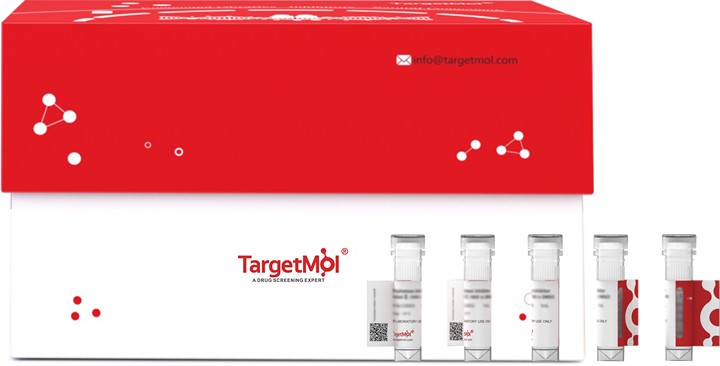Shopping Cart
Remove All Your shopping cart is currently empty
Your shopping cart is currently empty
MIF Protein, Human, Recombinant is expressed in E. coli. The accession number is P14174.

| Pack Size | Price | USA Warehouse | Global Warehouse | Quantity |
|---|---|---|---|---|
| 5 μg | $85 | - | In Stock | |
| 10 μg | $138 | - | In Stock | |
| 20 μg | $197 | 7-10 days | 7-10 days | |
| 50 μg | $339 | - | In Stock | |
| 100 μg | $543 | 7-10 days | 7-10 days | |
| 200 μg | $877 | 7-10 days | 7-10 days | |
| 500 μg | $1,650 | 7-10 days | 7-10 days | |
| 1 mg | $2,680 | 7-10 days | 7-10 days |
| Biological Activity | Activity has not been tested. It is theoretically active, but we cannot guarantee it. |
| Description | MIF Protein, Human, Recombinant is expressed in E. coli. The accession number is P14174. |
| Species | Human |
| Expression System | E. coli |
| Tag | Tag Free |
| Accession Number | P14174 |
| Synonyms | MMIF,Macrophage Migration,Inhibitory Factor,Glycosylation-inhibiting factor,GLIF,GIF |
| Construction | Met1-Ala115 |
| Protein Purity | > 95% as determined by SDS-PAGE; > 95% as determined by HPLC |
| Molecular Weight | ~12.5 kDa (Reducing conditions) |
| Endotoxin | < 0.2 EU/μg of protein as determined by the LAL method. |
| Formulation | Lyophilized from a 0.2 μm filtered solution in PBS. |
| Reconstitution | Reconstitute the lyophilized protein in sterile deionized water. The product concentration should not be less than 100 μg/ml. Before opening, centrifuge the tube to collect powder at the bottom. After adding the reconstitution buffer, avoid vortexing or pipetting for mixing. |
| Stability & Storage | Upon receiving, this product remains stable for up to 6 months at lower than -70°C. Upon reconstitution, the product should be stable for up to 1 week at 4°C or up to 3 months at -20°C. For long term storage it is recommended that a carrier protein (example 0.1% BSA) be added. Avoid repeated freeze-thaw cycles. |
| Shipping | In general, Lyophilized powders are shipping with blue ice. Solutions are shipping with dry ice. |
| Research Background | Macrophage Migration Inhibitory Factor (MIF) is a pleiotropic cytokine, existing as a homotrimer in vivo. MIF was originally identified as a T cell derived factor responsible for the inhibition of macrophage migration. However, recently MIF has received much more attention because of its possible roles in angiogenesis and cancer development. MIF is over-expressed in various cancers, including pancreatic, breast, colon, brain, prostate, skin, and lung. The intratumoral expression of MIF is strongly correlated with angiogenic growth factor expression, such as the expression of Interleukin 8 (IL-8) and Vascular Endothelial Growth Factor (VEGF), and with risk of recurrence after resection. |
| Size | Quantity | Unit Price | Amount | Operation |
|---|

Copyright © 2015-2026 TargetMol Chemicals Inc. All Rights Reserved.